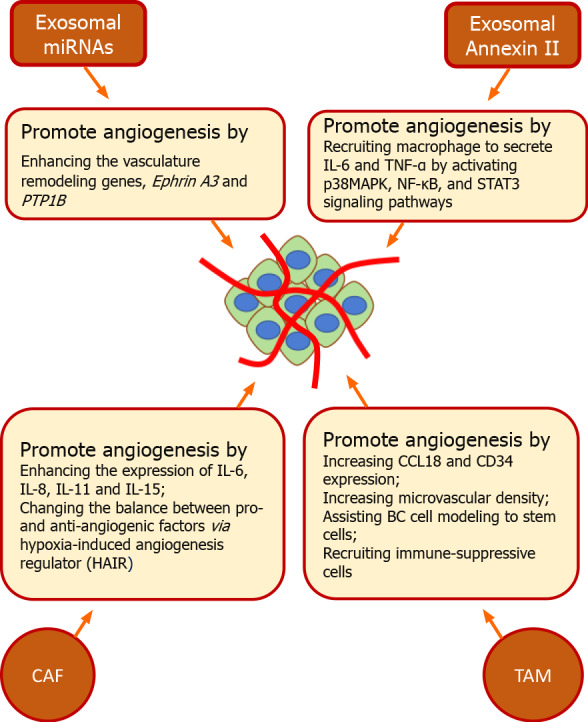Figure 2.

Modulation of angiogenesis by innate immune cells and other communicators in breast tumor microenvironment. In breast tumor microenvironment, innate immune cells and other communicators modulate angiogenesis. Tumor-associated macrophages promote angiogenesis by increasing the expression of CCL18, CD34, and microvascular density and assisting breast cancer cell modeling into stem cells for recruitment of immune-suppressive cells. Cancer-associated fibroblasts promote tumor angiogenesis by enhancing the expression of interleukin (IL) 6, IL-8, IL-11 and IL-15 as well as by changing the balance between pro-and anti-angiogenic factors via hypoxia-induced angiogenesis regulator. Tumor-derived exosomal Annexin II induce angiogenesis by recruiting macrophages to secrete IL-6 and tumor necrosis factor-α by activating p38MAPK, nuclear factor-κappa beta, and STAT3 signaling pathways. Exosomal miRNAs contribute to the development of tumor angiogenesis by enhancing the vasculature remodeling genes, Ephrin A3 and PTP1B. TAM: Tumor-associated macrophage; CAF: Cancer-associated fibroblast; HAIR: Hypoxia-induced angiogenesis regulator; NF-κβ: Nuclear factor-κappa beta; TNF: Tumor necrosis factor; IL: Interleukin; BC: Breast cancer.
